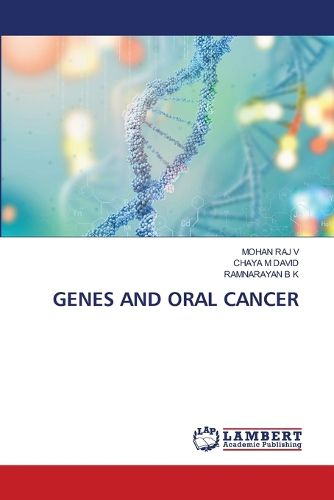Readings Newsletter
Become a Readings Member to make your shopping experience even easier.
Sign in or sign up for free!
You’re not far away from qualifying for FREE standard shipping within Australia
You’ve qualified for FREE standard shipping within Australia
The cart is loading…






In this book, we study about the genes involved in oral carcinogenesis and its use in gene therapy. Carcinogenesis is a complex, multi-step process in which genetic events within signal transduction pathways governing normal cellular physiology are quantitatively altered. The genetic basis of cancer is now well-established. Under normal conditions, these tightly controlled excitatory and inhibitory pathways regulate oral keratinocyte biology. Basic cellular functions under these controls include cell division, differentiation, senescence and adhesion. Genetic factors such as oncogenes, Tumour suppressor genes and regulatory genes are identified to involve in oral carcinogenesis with these risk factors dependent and independent manner. MiRNAs and Ras Oncogene is one of the most frequently genetically deregulated in oral cancer. Gene therapy for cancer accounts for the majority of gene therapy clinical trials. Targets for this include replacement of tumour suppressor genes, ''suicide genes'' to activate prodrugs, antiangiogenic gene kine-based gene transfer.
$9.00 standard shipping within Australia
FREE standard shipping within Australia for orders over $100.00
Express & International shipping calculated at checkout
In this book, we study about the genes involved in oral carcinogenesis and its use in gene therapy. Carcinogenesis is a complex, multi-step process in which genetic events within signal transduction pathways governing normal cellular physiology are quantitatively altered. The genetic basis of cancer is now well-established. Under normal conditions, these tightly controlled excitatory and inhibitory pathways regulate oral keratinocyte biology. Basic cellular functions under these controls include cell division, differentiation, senescence and adhesion. Genetic factors such as oncogenes, Tumour suppressor genes and regulatory genes are identified to involve in oral carcinogenesis with these risk factors dependent and independent manner. MiRNAs and Ras Oncogene is one of the most frequently genetically deregulated in oral cancer. Gene therapy for cancer accounts for the majority of gene therapy clinical trials. Targets for this include replacement of tumour suppressor genes, ''suicide genes'' to activate prodrugs, antiangiogenic gene kine-based gene transfer.